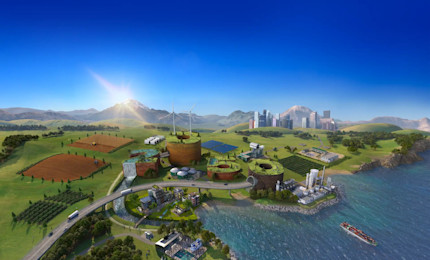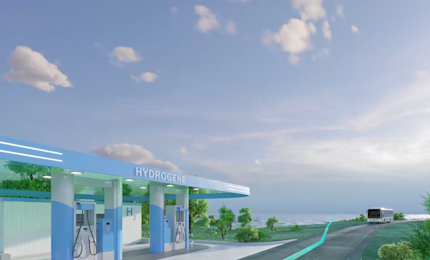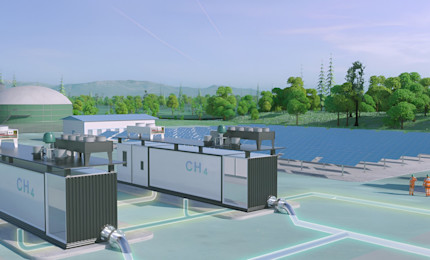Urgence gaz 0 800 028 800

How is CO2 an energy that complements the energies of the future?
Today, certain residual COCO2emissions* that emit greenhouse gases are unavoidable. The CCUS is therefore a building block for decarbonisation, making it possible to capture the COvemitted by industry, to recycle it as a raw material via various industrial applications or to store it safely so that it can be permanently isolated from the atmosphere. Its storage is therefore the last step after the application of the various energy measures to make the most of COCO2, in synergy with the new renewable energies, in particular by combining it with hydrogen. The CCUS therefore offers concrete solutions for the sectors that are hardest to decarbonise.
The transition to a low-carbon economy desired by France and Europe requires a radical overhaul of our energy and industrial systems. The energies of the future, such as renewable energies (wind, hydro, etc.), hydrogen and green gases (biomethane, synthetic methane, etc.), are essential to meeting these objectives. They offer solutions for decarbonising industry, reducing greenhouse gas emissions and boosting local economies by strengthening the industrial fabric.
In this context, multi-energy ecosystems, driven by the synergy between these different sources and the complementary nature of CCUS solutions, are crucial. Thanks to these combinations, it will be possible to achieve the 2050 decarbonisation target.
Teréga aims to deploy these solutions by supporting manufacturers, project developers and local authorities in setting up the infrastructure needed for this energy transition.
*remaining incompressible carbon emissions after taking all the necessary steps to reduce energy consumption, improve energy efficiency and integrate renewable energy.
Why this dedicated carbon educational platform?
The “CCUS zero CO2 objective” educational platform serves as a guide for users, enabling them to grasp all the complexities of capturing, transporting, storing and using CO2. It is aimed at a wide audience of direct and indirect players in this field, providing a clear and detailed overview of CCUS technologies and their impact on decarbonisation.
The platform has 3 main objectives:
Raise awareness and provide clear information about CCUS, its technologies and applications.
Training to help established and emerging players in the sector to understand and implement these solutions.
Engage audiences by highlighting the emergence of new projects and giving them access to detailed data.
Themes to discover step by step
CCUS in brief: to understand the basic principles, the origin of the molecule, its capture, storage and an overview of the CCUS value chain.
Decarbonisation and revitalisation of regions: through a concrete analysis of the reduction of industrial emissions and the revitalisation of regions.
Deployment of the CCUS in France: through the presentation of national strategies.
Synergy between CO2 and H2: to obtain a clear understanding on how it reinforces energy efficiency in reducing overall emissions.
Transport and storage: an overview of the actions and features required to deploy these infrastructures.
At the core of the action
The platform is designed to be accessible to all, with visuals, graphics and key figures to help you understand the subject. It is based on the principle of navigating through CCUS solutions. Each user can therefore develop at their own pace and consult the data that interests them. An educational approach that informs and encourages action to implement projects.
The “CCUS Zero CO2 Objective” platform can be a starting point for people interested in decarbonisation and the reindustrialisation of regions.
À lire aussi

Discover the “2050: a world of renewable, low-carbon energy” platform
To combat global warming while meeting our needs, there are renewable energies. The aim of the “2050: a world of renewable, low-carbon energy” educational platform is to find out more about these energies and understand how they can help meet the challenges of climate change and bring about a new energy era.

Discover the “Hydrogen Objective” platform
This interactive site aims to provide an in-depth and accessible understanding of hydrogen as an efficient solution for the reindustrialisation of regions and the decarbonisation of industry and mobility.

Discover the “Biomethane Objective” platform
La plateforme pédagogique « Objectif Biométhane » offre une connaissance approfondie du biométhane comme solution de décarbonation et de développement des territoires via une production décentralisée, une valorisation des matières et infrastructures gazières locales mais aussi grâce aux synergies possibles avec l’hydrogène.





